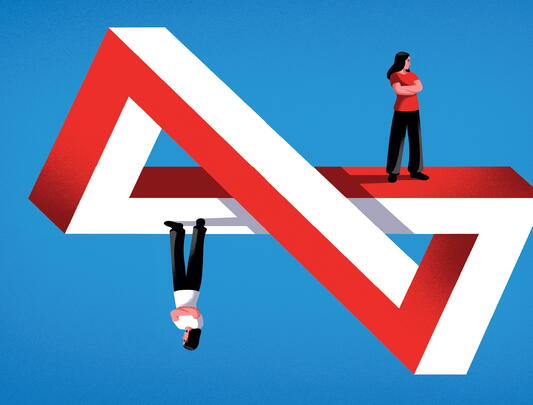UBC Student Admissions 101
How many students apply to UBC and how many get admitted?
Every year, we receive more than 40,000 applications for our undergraduate programs (domestic, international and transfer students) and roughly two-thirds of those applicants are offered admission. These applicants are very well-qualified students. Last year, we offered admission to 63 per cent of the Grade 12 domestic graduates who submitted applications to UBC (both campuses combined). In comparison, 60 per cent of international undergraduate applicants were accepted.
How many students are enrolled at UBC in the current academic year?
In September, UBC welcomed 63,370 students to its Vancouver and Kelowna campuses. Of these students, more than 70 per cent are from BC, five per cent are from the rest of Canada, and 25 per cent are international students from about 150 countries.
My child had a 90 per cent average but was not accepted at UBC. Why?
Admission to UBC is competitive. The admission criteria are determined by three things: (a) how many domestic students apply, (b) the grades they present, and (c) how many new first-year seats are available (as determined by government targets and funding). Demand from international students does not affect any of these factors. In addition, UBC looks beyond applicants’ grades and considers their personal profiles: what kinds of things have they done outside of the classroom and what have they learned from those experiences? As a result, having high grades does not, in and of itself, guarantee admission, particularly to our most competitive programs.
In addition to grades, how else are applicants evaluated?
UBC uses broad-based admissions criteria, in addition to grades. The information helps us determine whether an applicant will flourish here – not just because of their grades, but also because of the experiences and ambition they bring with them. Applicants are asked to tell us about the things that are important to them, their significant achievements, what they’ve learned from their experiences, and the challenges that they’ve overcome. Alumni volunteers play an important role in this broad-based admissions process, helping, with others, to assess the personal profiles of prospective students. Grades are still of vital importance, but we look at the whole person too.
Are only Lower Mainland kids getting accepted into UBC – what about the interior or the north?
UBC accepts students from all over BC, Canada and the world. Around 1,200 students from the BC interior and the North were accepted in 2017.
What about Aboriginal students?
We estimate that there are around 1,500 Aboriginal students enrolled across the two campuses, although this may be an understatement as this number relates to those who self-identify as Aboriginal, and some may choose not to disclose their status. In recent years, UBC has made considerable efforts to encourage participation from Aboriginal students. The 2017 incoming class saw a 32 per cent increase of students who identify as Aboriginal entering UBC directly from secondary school.
What is the difference in admission standards between UBC Vancouver and Okanagan?
As mentioned previously, admission standards vary by how many domestic students apply, the grades they present, and how many new first-year seats are available (as determined by government targets and funding). Because those factors differ for the two campuses and for our many programs, admission standards vary.
Does UBC have admissions programs for children of alumni, like some of the Ivy League universities?
No. As a public university receiving taxpayers’ money, UBC accepts students based solely on their meeting the admissions criteria. It doesn’t matter who their parents are. In some private US schools, these types of programs, often referred to as legacy admissions, are more prevalent, although there is some evidence that the practice is declining.
The number of international undergraduate students we can admit is determined by individual faculties and approved by the UBC Senate in accordance with our commitment to provide excellent education and appropriate levels of support for all students, including counselling, advising, library services, experiential learning opportunities, and so forth.
Do international students take spaces away from domestic students? Are international students subsidized by BC taxpayers?
No. Each year, the provincial government funds UBC for a set number of domestic students. Domestic and international undergraduate applicants are considered separately, and they do not compete for the same spaces. Domestic applicants compete against each other for the government‑funded spaces, while international students compete for spaces that are not government funded. We have always enrolled more domestic students than we are provincially funded for. International undergraduate students pay significantly higher tuition fees, unaided by funding from BC taxpayers.
Is it easier for international students to get accepted?
The university first evaluates domestic applicants to ensure that the most qualified students are offered admission to the domestic, government‑funded spaces. This competitive process determines the marks required to gain admission – typically far above the minimum standard. With the wide range of educational systems found around the world, it is impossible to precisely equate grades (for example, 75 per cent vs. B+ vs. 4 for an International Baccalaureate Certificate course). Through the competitive process, UBC establishes admission criteria for international students that are comparable with domestic students and validates these equivalencies by examining first-year performance to ensure that international undergraduate students admitted perform at the same level as domestic students with comparable grades.
How much tuition do international students pay versus domestic students?
UBC’s international undergraduate students pay a higher tuition fee than domestic students that is benchmarked against fees charged for similar programs at peer institutions in Canada and reflective of the value of a UBC degree. Tuition revenue from international students enables UBC to provide an outstanding education and enriched student experience for all students. In the 2016/17 fiscal year, $234 million was received from international undergraduate students compared with $221 million from domestic undergraduate students. International students also provide important economic benefits to the city, the province and the country – sparking relationships that can lead to lasting, mutually beneficial exchanges of research, trade and business opportunities.
Are there any scholarships available?
Yes, there are a range of scholarships and bursaries available to domestic students at both the undergraduate and graduate levels. UBC and its donors award $15 million to incoming students with awards such as the Major Entrance Scholarship, the Schulich Leader Scholarship, and the Centennial Scholars Entrance Award. For those with financial need, there are bursaries and student housing assistance and supplement grants. For international students there are merit-based and need‑based awards, including the International Scholars program, now in its 16th year, and the MasterCard Foundation Scholars Program.
More details on all of these are available at: students.ubc.ca/enrolment/finances/awards-scholarships-bursaries
Where do the majority of UBC’s international students come from?
UBC has one of the most diverse populations of international students in Canada, representing many countries. The top five source countries of international students are China, the US, India, Republic of Korea, and Japan. This year’s first-year undergraduate students come from 131 countries.
What about domestic students going abroad? How does UBC ensure global engagement isn’t just a one-way street?
International engagement is the hallmark of a globally-ranked university like UBC, one of Canada’s best universities, and it’s one of the compelling reasons students from BC and the rest of Canada come here to study. They know that they will have an opportunity to learn from top faculty members drawn from around the world and to interact with and learn from peers whose diverse backgrounds will enrich their student experience.
We encourage our domestic students to broaden their horizons through internationally-focused learning opportunities – enabling them to become global citizens ready to meet the challenges of the world. More UBC students go on exchanges, research, and study abroad programs than students at any other university in Canada. UBC’s Go Global program, for example, partners with 300 universities worldwide, and administers over $1.4 million in international learning awards.
What advice would you give to a prospective applicant to UBC?
We look at each prospective student as a whole person: a combination of talents, interests, and passions. Our students have a wide variety of backgrounds, experiences, and skills. What they have in common is a commitment to pursue academic excellence in a challenging, rewarding, and supportive environment.
Who Gets In? The Truths and Myths of How Canadian Universities Make Admission Decisions
A presentation by UBC’s Deputy Registrar, Enrollment Services, Andrew Arida
Grade 11 and 12 grades, self-reporting, personal statements, short answer questions, extra-curricular activities, and applicant interviews; there is a great deal of information that can go into admission decisions. This begs a question: how do Canadian universities use all this information to determine who gets in? This presentation will provide an overview of the rationales and decision-making process UBC and other Canadian universities often use to make admission decisions. Andrew will also dispel the myths and rumours that often surround the admission process.

































